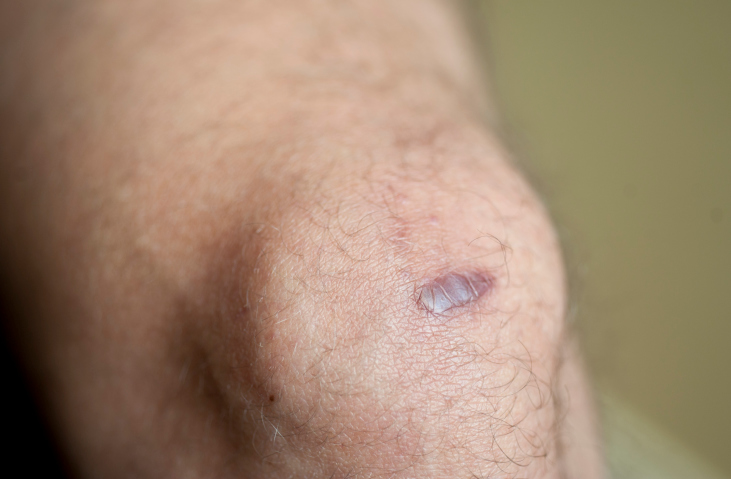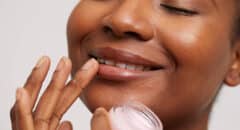
Keloids are fibrous lesions that form at a site of injury due to irregular production of type III and type I collagen. Unlike hypertrophic scars, keloids continue to grow outside of the original wound margins, fail to resolve over time, may itch and become painful. High tension areas such as the chest, trunk and back, as well as commonly pierced areas such as the ears, are some of the more popular sites for keloid formation. Although documented in all races, keloids are more prevalent in people of color (African American, Asian, Latinos) with a positive correlation to skin pigmentation. Most keloids appear in those with darker skin types while there are no reported incidents in Albinos. Keloids often mature into unsightly lesions affecting self-esteem and quality of life. Depending on the location and size of the keloid, range of motion may be impaired.
With limited knowledge about the actual cause of keloids, determining the most effective treatment for keloids has proven challenging. Some of the more popular natural remedies to remove keloid scars are:
1. Lemon Juice - Extract the juice from a fresh lemon and apply it on the affected skin area.
Leave it on for about half an hour, and then wash the area with lukewarm water.
Repeat the process at least once daily.
2. Baking Soda - Mix one part baking soda with three parts hydrogen peroxide to make a smooth paste.
Apply the paste directly on the affected area to reduce inflammation and speed up the healing process.
Do this three or four times a day depending upon the severity of the scar.
3. Aspirin - Crush three or four aspirin tablets and add a small amount of water to make a smooth, thick paste.
Apply the paste on the scar, allow it to dry completely and then rinse it off by rubbing the area gently under water.
Pat the area dry and then apply some olive oil or tea tree oil.
Do this daily until the keloid is gone.
Other treatments such as surgical excision, postoperative radiotherapy, triamcinolone injections, pulse dye laser, cryotherapy and silicone sheeting are among the more popular treatments used. Many combinations of these therapies have been used with results varying drastically.
For a long time, keloid scars were virtually impossible to prevent and difficult to keep from reoccurring. These unsightly tissue formations may affect your confidence and can make you feel as though your skin is not your own. Traditional treatments are painful, ineffective, and cannot be used on children.
But a forward-thinking doctor, Dr. Kendrick Spence, is looking to change that. Dr. Spence was given the top plastic surgeon award for the sixth consecutive year, is using a new photon therapy or superficial radiotherapy (SRT) treatment that is a making major advances in the treatment of this common problem.
SRT treatment method targets those cells that overproduce scar tissue and result in the raised and expanded keloid scars that cause so much discomfort.
The SRT–100 is an exciting new development and delivers superficial photon beam therapy to the healing scar. This controls the overproduction of collagen that leads to hypertrophic scarring. This is a superficial targeted treatment that does not penetrate beyond the fibroblastsresponsible for wound healing. After excision the patient is given three consecutive doses of SRT over three days and the wound heals normally. Within days the patient is free of an ugly scar with a...
... better than 90% cure rate. No multiple visits, painful injections or the need to cover up.
RELATED: 9 Ways To Naturally Remove Scars, Bruises & Stretch Marks
In a recent study, it was found that surgical excision combined with postoperative in office superficial radiation therapy achieved a preliminary 100% non-recurrence rate at four to eleven month follow-up. Early results of this study demonstrate that this protocol appears to be a safe and viable option in the management of keloids and merits further randomized controlled study of its comparative efficacy.
For more information on this new keloid treatment, click here.









